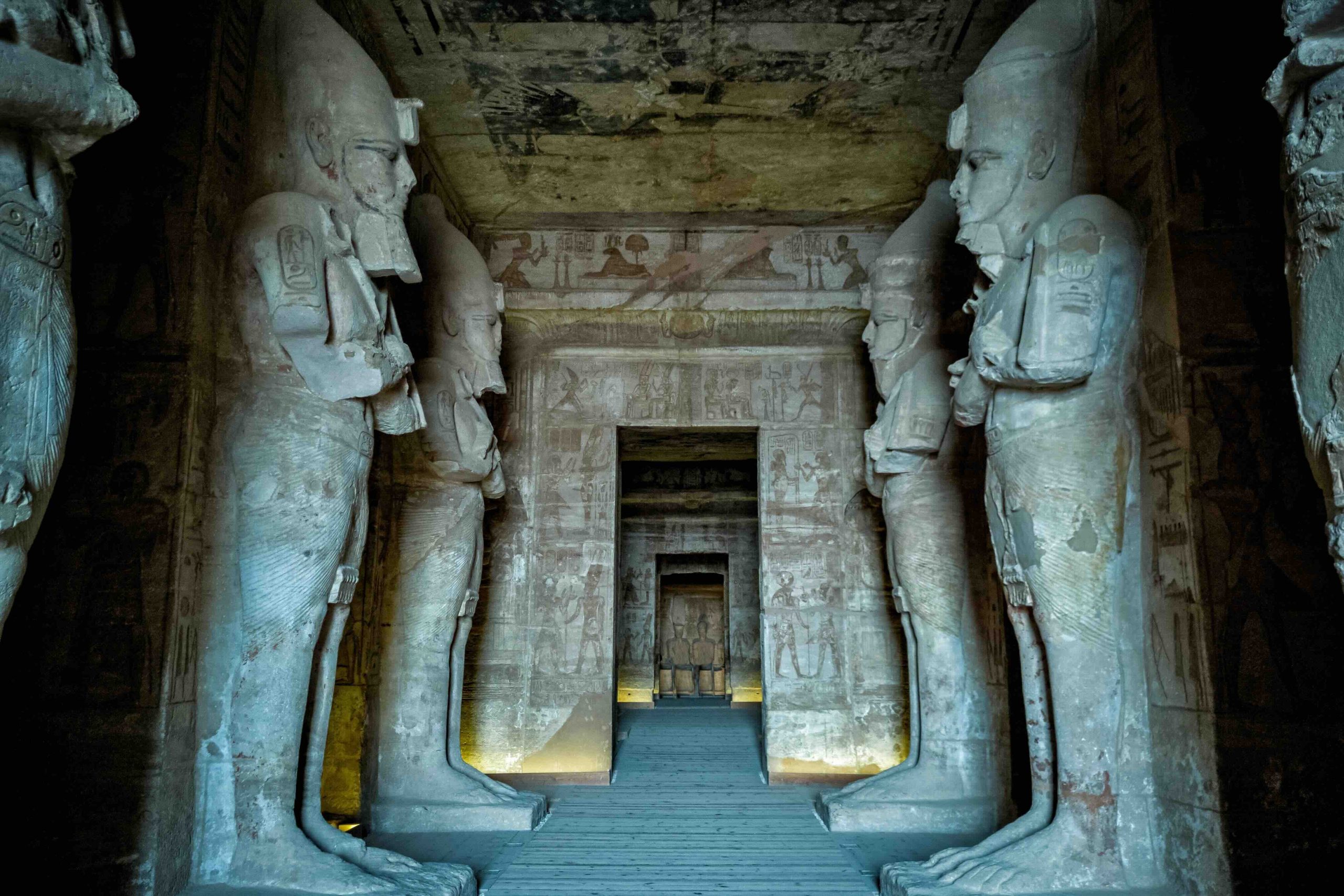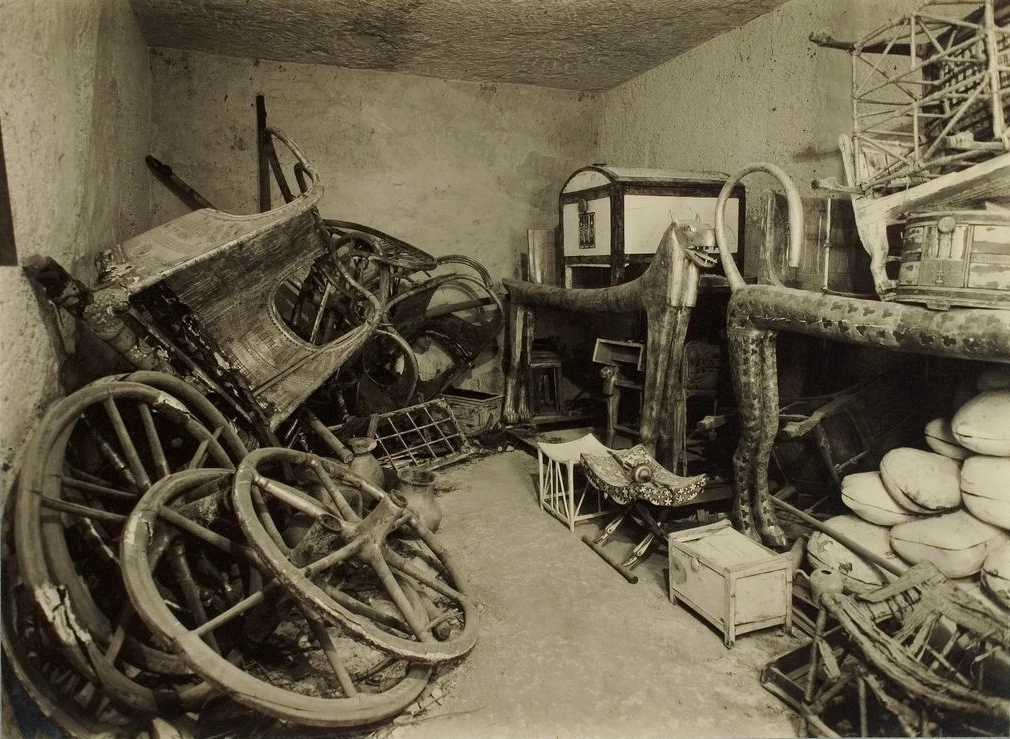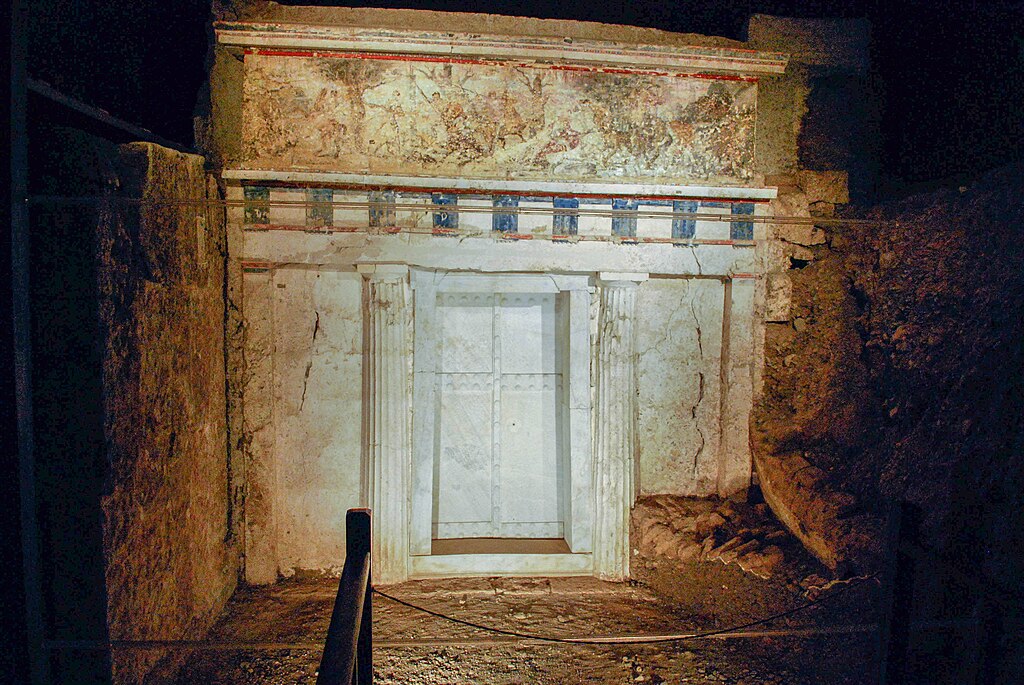
Ancient tombs have always fascinated archaeologists and adventurers alike. Beyond their grand architecture and historical significance, they often contain artifacts that reveal secrets of long-lost civilizations. Here are 10 of the most remarkable discoveries unearthed from ancient tombs.
10. King Tutankhamun’s Tomb
The Boy King’s Glorious Burial

Source: Harry Burton (1879-1940), Public domain, via Wikimedia Commons
Discovered by Howard Carter in 1922, the tomb of King Tutankhamun remains one of the most famous archaeological finds of all time. Unlike many other pharaohs’ tombs, it was largely intact, filled with treasures, including a golden mask, chariots, and even food for the afterlife.
Weird detail: King Tut’s tomb contained a dagger made of meteoric iron, forged from material that fell from space.
9. The Terracotta Army
Guardians of China’s First Emperor

Source: xiquinhosilva, CC BY 2.0, via Wikimedia Commons
In 1974, farmers in Xi’an, China, stumbled upon a massive underground army of life-sized terracotta soldiers. Buried with Emperor Qin Shi Huang, the first emperor of a unified China, the figures were designed to protect him in the afterlife.
Weird detail: Each soldier has unique facial features, suggesting they were modeled after real people.
8. The Tomb of the Red Queen
Mystery of the Scarlet Mask

Source: ProtoplasmaKid, CC BY-SA 4.0, via Wikimedia Commons
Found in Palenque, Mexico, this Mayan tomb contained the remains of a woman covered in red cinnabar powder, earning her the name “Red Queen.” Her burial chamber included intricate jade masks and jewelry, but her identity remains unknown.
Weird detail: The cinnabar used was highly toxic, likely meant to protect the tomb from grave robbers.
7. The Tomb of Qin Shi Huang
The Emperor’s Untouched Burial Site

Source: Aaron Zhu, CC BY-SA 3.0, via Wikimedia Commons
While the Terracotta Army is famous, the actual tomb of Emperor Qin Shi Huang has never been excavated. Ancient texts describe a burial chamber filled with rivers of mercury and a replica of the emperor’s empire, lit by a ceiling of jewels representing the stars.
Weird detail: Soil tests around the tomb revealed high mercury levels, suggesting the ancient descriptions may be true.
6. The Tomb of the Lord of Sipán
Peru’s Golden Warrior

Source: AgainErick at the English-language Wikipedia, CC BY-SA 3.0, via Wikimedia Commons
Dubbed the “King Tut of the Americas,” the Lord of Sipán’s tomb, discovered in 1987, contained incredible treasures of the Moche civilization. Gold jewelry, intricate ceramics, and remains of sacrificial attendants showcased the wealth and rituals of this ancient Peruvian culture.
Weird detail: The Lord was buried with a menagerie of llamas and dogs, believed to accompany him to the afterlife.
5. The Royal Tombs of Ur
Sumerian Treasures from the Cradle of Civilization

Source: Alma E. Guinness, CC0, via Wikimedia Commons
Discovered in the 1920s in present-day Iraq, the Royal Tombs of Ur date back over 4,000 years. They were filled with gold artifacts, musical instruments, and evidence of human sacrifices, offering a glimpse into the opulence of ancient Sumerian society.
Weird detail: One harp found in the tomb is believed to be the world’s oldest surviving stringed instrument.
4. The Tomb of Lady Dai
China’s Best-Preserved Mummy

Source: Huangdan2060, CC0, via Wikimedia Commons
Lady Dai, a noblewoman from the Han Dynasty, was discovered in 1971 in a near-perfectly preserved state. Her tomb contained silk garments, lacquerware, and food, but what stunned scientists was her body—her skin was still soft, and her veins contained traces of blood.
Weird detail: The preservation techniques remain a mystery, with no similar discoveries ever made.
3. The Tomb of Ramesses II
The Greatest Pharaoh’s Eternal Rest

Source: © Vyacheslav Argenberg / http://www.vascoplanet.com/, CC BY 4.0, via Wikimedia Commons
One of Egypt’s most powerful pharaohs, Ramesses II, was buried in the Valley of the Kings. Though his tomb was looted in antiquity, his mummy has survived remarkably well, revealing a wealth of information about his health and life.
Weird detail: Ramesses II’s hair was dyed red, possibly to mimic the appearance of youth in the afterlife.
2. The Viking Ship Burial of Oseberg
The Final Voyage

Source: Bochum1805, CC BY-SA 2.0, via Wikimedia Commons
Discovered in Norway in 1904, the Oseberg ship burial contained the remains of two high-status Viking women. The ship was packed with treasures, textiles, and even sleds, suggesting they were of great importance in Viking society.
Weird detail: Some scholars believe one of the women may have been a Viking queen or priestess.
1. The Tomb of Philip II of Macedon
The Father of Alexander the Great

Source: Panegyrics of Granovetter (Sarah Murray), Public domain, via Wikimedia Commons
In 1977, archaeologists uncovered the tomb of Philip II in Vergina, Greece. It contained weapons, a golden chest with his remains, and intricate frescoes. The discovery provided invaluable insights into ancient Macedonian culture and the lineage of Alexander the Great.
Weird detail: The chest containing Philip’s remains was decorated with the Vergina Sun, a symbol still associated with Macedonia today.
Final Thoughts
These ancient tombs reveal more than just the lives of the individuals buried within—they offer windows into the cultures, beliefs, and technologies of their times. From cosmic daggers to rivers of mercury, the treasures and mysteries hidden in these burial sites continue to captivate and inspire.


